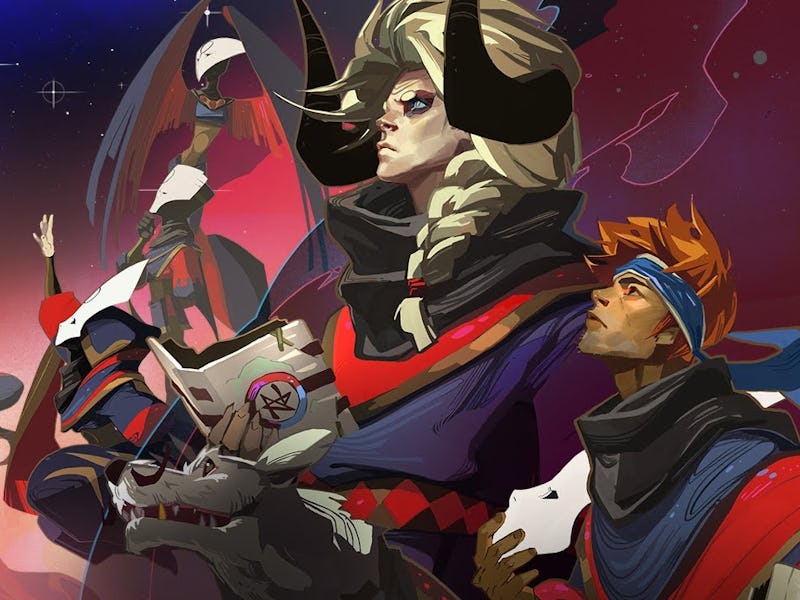Six Years Ago, the Hades Devs Made an Unforgettable Riff on NBA Jam
Y’all ready for this?

Every title from indie darling Supergiant Games feels special due to how different it is from every other game from the developer. While the art, music, and some of the mechanical designs feel like they are taken from the same cloth there is always something fresh.
Out of all of its titles, the one that feels the most unique and surprising — even six years later — is Pyre. It mixes procedural storytelling with sports in a way that feels every bit as innovative and influential as the studio’s 2020 smash hit, Hades.
Gameplay and narrative have always been equally important in Supergiant’s catalog. But players typically control a single protagonist. That just doesn’t work for a sports game. Which is what Pyre is at its core. The game centers around events called Rites, which are this world’s fantastical sports event of choice. It’s a game played by two teams of three, who pass a ball around and try to hit the other team’s pyre until it is destroyed.
Supergiant’s fantastical twist on NBA Jam is just as satisfying to play.
The field of play during Rites is small enough that the flow of a game feels fast and fluid. Just like any FIFA or NBA game, the player passes the ball around their team, controlling whoever has possession of the ball. It's a simple translation of the sports genre that makes picking up Pyre so easy.
The game’s story takes place in the equivalent of a season of sports. Your group is working their way up to the finals, and along the way must face off against numerous other teams. Pyre is also a management sim in that you can pick up new team members, choose the starting roster, and spend time training the team to get better. Each character in Pyre feels like a replacement for the skills and abilities seen in other Supergiant Games, as you instead switch out team members from your starting roster based on their unique traits and skills during Rites.
Pyre’s use of procedural generation is a precursor to Hades.
Pyre’s narrative centers around the joys and disappointments of a good sports story. There is no fail state, so you can win or lose any Rite and the narrative will simply continue. If you are that bad, you may very well lose every single Rite. But the narrative will adapt to this.
Before Hades’ roguelite structure weaved story progression into procedurally-generated combat, Pyre paved the path. The game’s narrative system deftly adapts to your team's story. Every occurrence becomes a high-stakes plot point and every character has the potential to be the star of the show. Team members can get along or have egos and your story may end up revolving around a heated rivalry with another team who you keep butting heads with during Rites. While the player has some choice in this, mostly based on their skill at Rites, it is a mystery what awaits you after every Rite.
As a comparison to Supergiant’s previous title, Transistor, Pyre is about freedom. Transistor’s strengths are its clinical approach to combat that requires players to think several steps ahead and execute plans as well as its short but tightly woven narrative that has no trouble tugging on the heartstrings. Pyre has the potential to offer both of those things on certain runs, but it's a game about endless permutations that come from the win-or-lose nature of the Rites.
Six years later Pyre still feels fresh every time I play it because it can always surprise me. Whether I win or lose the Rites, there is a new story waiting to be told.